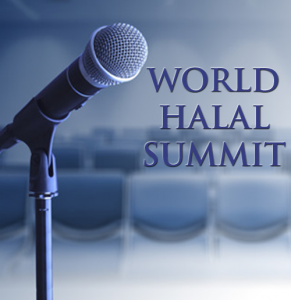(Ahlul Bayt News Agency) – The International Halal and Healthy Food Fair held in Istanbul Fair Center (CNR Expo) began on Thursday.
At least 100 companies with 200 brands took part in the fair in the fields of food, cosmetics, medical and cleaning supplies, fashion textile and modest dress, pilgrimage materials.
Meanwhile, Halal Products Research Institute (GIMDES) will organize the 6th International Halal and Healthy Food Conference in Istanbul to be held on Saturday to discuss the problems of “Halal Certifiers” across the world.
In the conference, manufacture and trade problems of halal and healthy products and its resolution proposals for Muslims and non-Muslim countries, investigations of medicine and cosmetic raw material on the aspects of Islamic perspective, Halal slaughter opinions of Muslims across the world, consumption risks for transgenic and genetically modified organisms in Islam and health viewpoint will be discussed.
The guest speakers from various regions such as Europe, United States and Asian countries will make their presentations at the conference.
The participants of the conference have been working in different disciplines such as food-industry, academics, government, and trade.
Producers of halal goods — products that are in compliance with Islamic halal standards — from different countries should put aside tough competition in dominating the global halal market and start to cooperate to ensure their products’ are in compliance with halal standards under a global umbrella organization, the head of a Turkish union said on Thursday.
Producers should unite under a single global entity to produce a set of guidelines in manufacturing halal products, said Turkey’s Association for the Inspection and Certification of Food and Supplies (G?MDES) President Hüseyin Kamil Büyüközer, speaking at the opening of the ?stanbul Halal Expo, which will run through the weekend. The global trade volume of halal goods is estimated to be at around $1 trillion.
“The plan of having global standardization in halal-product processing was brought up many years ago, but we still can’t achieve the goal due to government competitiveness in dominating the market,” Büyüközer said.
“All countries producing halal products must unite under a single entity to make sure the manufacturing of products is in compliance with Islamic teaching,” he added.
 Büyüközer said that by standardizing the production halal products, it will be easier for consumers to choose between halal and non-halal goods.
Büyüközer said that by standardizing the production halal products, it will be easier for consumers to choose between halal and non-halal goods.
“Jewish communities in foreign countries have established a global set of rules to make sure their food consumption is in compliance with their religion. If they can have the global market following their needs, I don’t see any reason why Muslims cannot establish the same thing,” he said.
The union head said that each country should have its own representatives to discuss the terms for standardization so that everyone can have an equal share in the market.
“Although the global Muslim population is divided into different sects, we still follow the same laws that are written in the Quran when it comes to halal production. Thus, it will be easier for us to keep everyone on the same page,” he said.
Regarding halal products manufactured by non-Muslim countries, Büyüközer said that Muslim countries should organize a group to oversee the production of non-Muslim countries’ halal products.
“If we can reach this goal of standardization, our consumers can be assured that the product they buy is halal, even if it is manufactured by non-Muslim countries,” Büyüközer said.
ARTICLE TWO



